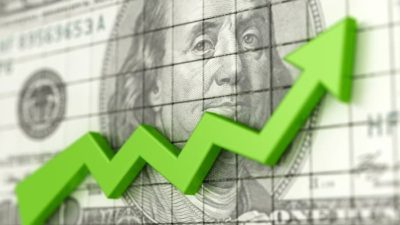Investing in ASX index funds has been a trend that has seen phenomenal growth over the past decade or two. The flow of dollars finding a way into ASX index funds seems to grow every single quarter, and many of the largest funds on the ASX now have more than $10 billion invested.
Accompanying this rise in interest from ASX investors has been the number of index funds available to investors. A few years ago, there were only a handful of index funds that one could invest in. But today, the sheer plentitude can be overwhelming for new investors.
So, which index fund is the best buy for an ASX investor today? That's what we'll be discussing here.
Which ASX index fund to buy today?
Firstly, I don't think it's useful picking one index fund over another based purely on past performances. An ASX-based index fund may have trailed an American index fund over the past 10 years. But over other periods of time, ASX shares may have outperformed their US counterparts.
The more important aspects to consider are the fees a particular index fund charges, whether the market it tracks is financially stable and offers strong regulatory protections for investors, and whether that market has a history of delivering returns to shareholders.
Both the American and Australian stock markets fit the latter two criteria, and there are many examples of low-fee funds on the ASX that will give one this exposure.
Buying an ASX index fund that covers either the Australian share market or the American market might give investors pause today, as both markets are pretty much at all-time record highs.
However, this should not put anyone off, in my view. Both the Australian and American markets have historically gone up far more than they have gone down. And both markets have never failed to exceed a previous all-time high.
As such, I would advocate that initiating an investment in either right now won't prove to be a disappointment. Provided one has a long-term mindset, of course.
If you're worried about the market's current valuations, perhaps initiating a dollar-cost averaging strategy might be a good idea. That way, you can invest smaller amounts regularly over time rather than dumping all of your money in at once.
Choosing a fund to invest in
Regardless of whether an investor chooses an ASX index fund, a US-based index fund, or a mixture of both, I think they are making a good choice.
Personally, I prefer the Vanguard Australian Shares Index ETF (ASX: VAS) for ASX exposure. The extra 100 shares that this index fund includes gives it a small diversification boost when compared to ASX 200 index funds. Plus, that 0.07% per annum management fee is relatively cheap.
When it comes to American index funds, it's hard to look past the iShares S&P 500 ETF (ASX: IVV). S&P 500 index funds have been endorsed and recommended by none other than Warren Buffett. And this offering from iShares charges a very respectable fee of just 0.04% per annum.
What about other index funds?
Of course, there are plenty of index funds on the ASX that cover other markets. There's a Japanese index fund, for example, as well as a Korean fund, several European-focused funds, a few Chinese index funds, and one that tracks the British stock market. There are even index funds that cover emerging markets like India, South Africa, and Brazil.
Whilst many of these funds fulfil at least some of the criteria we discussed above, I think most ASX investors need only stick to Australian or American index funds. Keeping things simple is a virtue on the ASX. Investing in our local market, perhaps in conjunction with the world dominance that the American markets offer, is all that most investors will need to build wealth.







